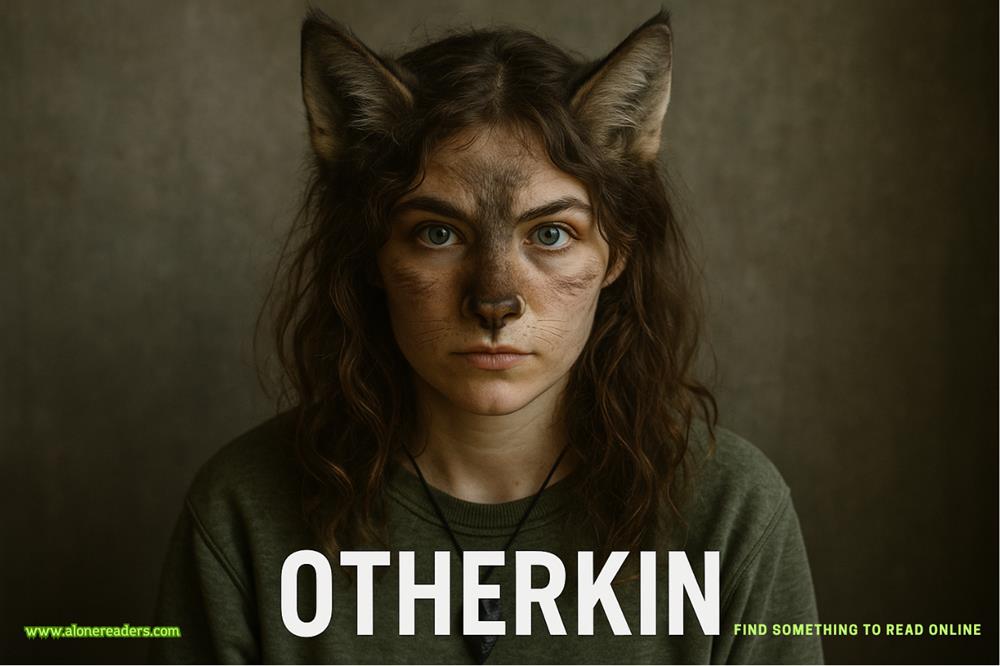Page 9 of Hell-Bound
With nowhere else to go, Renata decided to take part in what had become one of her favorite pastimes, drinking a mildly warmed ale that she didn’t have to pay for. She closed her eyes to listen to the jolly tune of the violin. It didn’t exactly fit her mood, but it was pleasant nonetheless.
Suddenly, she felt a warmth in her lap. Her head whipped down, startled. Her bag had suddenly become very toasty.
“What the—”
She reached in and searched inside.
It wasn’t hard to locate what was happening. Her piccolo was gently vibrating and quietly whistling a tune.
Renata looked around the tavern. There were several tables very close to her, but no one else seemed to hear the noise. Reaching in, she delicately touched the small instrument. It immediately stopped vibrating as if relieved at her touch. Abruptly, the overwhelming feeling of musical desire flooded her mind, and she itched to stand on the stage and play.
She looked towards the player currently occupying the space. He was easily identifiable as a Gnome with his short stature and nubbed ears. It was hard to tell his age, as Gnomes, like Elves and Fae, aged very slowly. He looked youthful anddidn’t have the marks of someone who had been through many trials in his life.
Renata, despite being young for someone with Elven heritage, had faint lines on her face like small grooves carved into her skin—another outward reflection of her past. She still looked youthful, but she knew that these marks were indeed evidence of a life lived, one that, despite what people had told her, might have had hardships. Others her age in Vergessen didn’t seem to carry so many worries drawn upon their skin.
Renata stood and let her body walk her to the stage. The Gnome glanced down, indicating that he had seen her as he finished the last few notes.
He bent down from the small stage, which was high enough to where, even with his short height, made him taller than her.
“Hi, Miss, what can I do for you?” he asked politely, his foot edging a small, ragged felt hat in her direction.
The hat had several copper pieces and some silver inside. Taking the hint, Renata dug around through her bag and placed one of her gold pieces inside the hat.
His eyes widened, and his mouth gaped.
“Oh wow. Uh...can…I play something for you? Any special requests?”
“Um… sort of. I don’t want to intrude—I’d like to play a song on my piccolo if you wouldn’t mind?”
The male smiled, grinning from ear to ear.
“Honestly, Miss, it’d be a great relief to be able to take a break.”
He hopped down and motioned for her to take the stage.
Renata smiled in thanks before deftly pulling herself onto the stage and looking around the room. No one seemed to notice the pause in the musical interlude or that there had been a change at all. People were busy cajoling, talking, playing games, and having conversations with their heads leaned close together.
Renata dropped her bag on the stage and kicked itbehind her. She looked down at her piccolo—anticipation and excitement rising. She hadn’t played her piccolo for a large audience before or in recent memory. But she was surprised that she wasn’t nervous. In fact, she felt glee at the prospect. But what to play?
When she played to herself on the ship, she had felt her melancholy through the notes.
That wouldn’t do.
Happiness.
That’s what was appropriate here.
But a happy memory? That wasn’t yet something she could grab onto. But she did have something. She raised the piccolo to her mouth, closed her eyes, and began to play.
A song languidly came forth from the small holes, a delicate song, not jovial like the others being played before but happy, nonetheless.
It was reminiscent of the wind and the salty air in the ship as it rode the waves. Playing felt familiar—as so few things did—and she relished the sensations across her lips. She didn’t know where she had learned the song or if she hadlearnedit at all, but it felt right. She couldn’t remember happiness, but she could remember being contented and hopeful as she headed towards this city. Taking the ship—coming to meet Leo—was the first true decision of her life, of the life she had now. The first decision she remembered. That was, in its own way, important and something to be celebrated.
She slowed her breathing to a subtle and quiet sound. She always loved this part, the change to a song, unexpected and surprising. It sounded so somber—a short reflection of the uncertainty she felt.
As she played the last notes and pulled the piccolo from her mouth, she realized she hadn’t heard voices or movements in the room. When she opened her eyes, she blushed furiously and noticed that most of the room was agape. She hadn’t really considered the audience and wasn’t yet attuned tointerpreting people’s faces. She couldn’t decipher if they were silently appalled or stunned. She decided the best course of action, either way, was to get off the stage as quickly as possible and buy another ale.
As she bent to jump down, her foot glanced off the old hat, which had been pulled to the edge. It was full. Coins of silver and copper to the brim—even a gold or two. She stared at it for a moment before gathering her bag and walking away.















